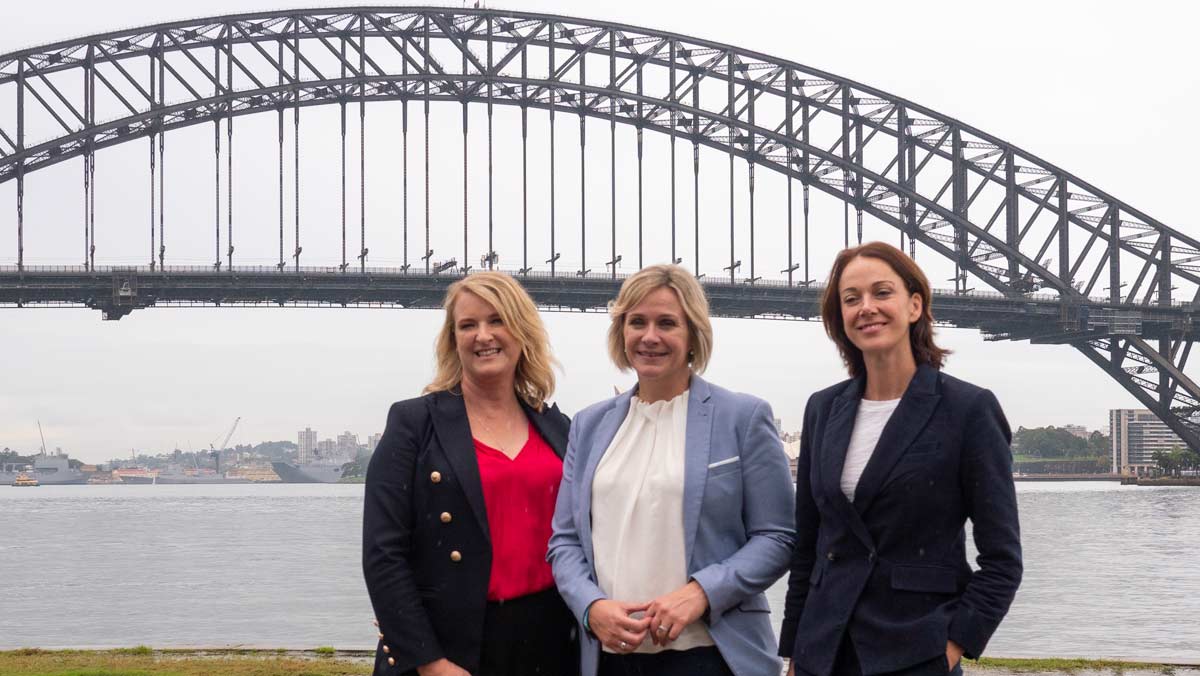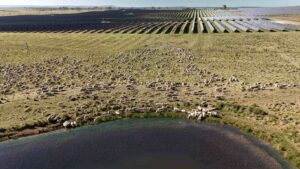A trio of independent candidates have stopped short of indicating whether they would back the Coalition or Labor to form the next government, saying they would instead assess each party’s platforms in consultation with their own electorates.
Independent candidates Zali Steggall, Kylea Tink and Sophie Scamps described the ‘two party’ electoral system as broken, and Australians were turning to independents as an opportunity to achieve progress in key policy areas, like climate change.
Steggall said that climate change remained a major priority for voters and that she would push the next government to stronger climate policies in line with the commitments made to voters in Warringah.
“I will be true to my pledge to my community, which is climate action, net zero and strong emissions reduction by 2030,” Steggall said.
“This is the election that we must put in place policies and levers that deliver emissions reductions.”
“We’re talking real emissions reduction, not just emissions gained by way of lockdown because we were in a global pandemic,”
“There is so much opportunity that we are missing investment out on to other jurisdictions, because Australia is not seen as a friendly jurisdiction for renewable and large-scale clean projects,” Steggall added.
Check out these independent candidates going electric. #AusPol pic.twitter.com/nNXmATl3j0
— Michael Mazengarb (@MichaelM_ACT) April 28, 2022
The trio of independents were speaking in Sydney, where they unveiled a set of electric vehicles that each will deploy as part of their election campaigns.
Independent Warringah MP Zali Steggall unveiled a branded electric bus that will be deployed as a ‘mobile office’ and transport volunteers throughout the election campaign.
The emergence of viable independent candidates has raised the genuine prospect of a hung parliament after the upcoming election – meaning candidates like Steggall, Tink and Scamps could decide who forms the next government.
South Australian independent MP Rebekha Sharkie indicated on Wednesday that she would offer the Morrison government the first opportunity to negotiate the formation of the government.
Sharkie argued that stability and continuity of government were important and that her own electorate of Mayo would expect the incumbent to be given the first change to continue after the election.
Stopping short of saying whether she would back the formation of either a Coalition or Labor government, Steggall said that she would view an election outcome where independents hold the balance of power as an “indictment” of the policies of both major parties.
“In circumstances where neither of the major parties have achieved a majority, I do view that this is an indictment from the Australian people that neither major party has brought to the table and policy platform that satisfies the majority of Australians,” Steggall said.
“The outcome of the election will be incredibly important in terms of who has a prima facie case to form government in terms of numbers, stability of the house, and the government was incredibly important.”
“But, I also have major concerns that over the course of the last three years, Scott Morrison, as prime minister, has failed to deliver on key promises; a federal integrity commission, I believe he has a fake net zero plan.”
“The commitment to net zero by 2050 is clearly crashing around the news with the National showing their true colours,” Steggall added.
North Sydney independent candidate Kylea Tink, who is launching a challenge to incumbent moderate Liberal Trent Zimmerman, said the ‘two-party system’ had failed voters.
“I think what’s clear is that the two-party system is broken, and it is deadlocked,” Tink said.
“It has been that way for the last decade and very little progress around important legislative areas such as climate change, integrity in politics, and fundamentally addressing the systemic issues that we have around the inequality in this nation.”
“I will be very clear on what I’ve been sent to Canberra to do. And that is to introduce a voice into the parliamentary process that seeks reason and consensus as a way forward for our country.”
“Our country cannot move forward in a two-party system, where it is all about who wins and who loses,” Tink added.
Dr Sophie Scamps, who is challenging another moderate Liberal, Jason Falinski, in the electorate of Mackellar, said the surge in support for independent candidates was a reflection of the frustration voters had with major parties.
“The community independent movement has come from within the community. So you can’t manufacture something like this,” Scamps said.
“We have tapped into a strong feeling across the community, and so I don’t think that they’ll be angry that I’m trying to genuinely represent people who have felt way too long that they’ve been cut out of their democracy, and that they can’t be heard.”
“People are supporting me to stand up for them and finally have their voices listened to,” Scamps said.










